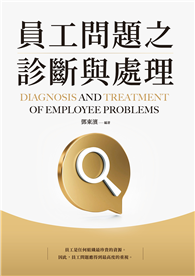Electronic waste includes such items as TVs, computers, LCD and plasma displays, and mobile phones, as well as a wide range of household, medical and industrial equipment which are simply discarded as new technologies become available. Huge and growing quantities of waste are discarded every year and this waste contains toxic and carcinogenic compounds which can pose a risk to the environment. However, if handled correctly, electronic waste presents a valuable source of secondary raw materials. This book brings together a group of leading experts in the management of electrical and electronic waste to provide an up-to-date review of the scale of the waste problem, the impact of recent legislation such as the Waste Electrical and Electronic Equipment Directive (WEEE) and the "restriction of the use of certain hazardous substances in electrical and electronic equipment" directive (RoHS), and of current and future methods for treatment, recycling and disposal of this waste. The book discusses these latest directives, examines current worldwide legislation and considers the opportunities and threats posed by this form of waste. While the emphasis is on European practice, comparisons with other countries such as the USA, Japan and China are made. The book deals with the full range of waste management issues, including recycling and recovery of materials, design considerations for waste minimisation, and contains a wide variety of illustrative case studies eg: LCD displays. With detailed and comprehensive coverage of the subject matter it also contains an extensive bibliography with each chapter. Key chapters cover areas such as: -electronic waste -materials -EU directives -landfill and incineration -recycling and recovery -’cradle to grave’ design considerations -engineering thermoplastics It is essential reading for all involved with electrical and electronic waste management through its comprehensive review of recent EU legislation and the subsequent impact on manufacturers and users of electronic equipment.
| FindBook |
有 1 項符合
Electronic Waste Management的圖書 |
 |
Electronic Waste Management 作者:Hester 出版社:Royal Society of Chemistry 出版日期:2008-12-03 語言:英文 規格:精裝 / 263頁 / 23.4 x 15.5 x 2.3 cm / 普通級 |
| 圖書館借閱 |
| 國家圖書館 | 全國圖書書目資訊網 | 國立公共資訊圖書館 | 電子書服務平台 | MetaCat 跨館整合查詢 |
| 臺北市立圖書館 | 新北市立圖書館 | 基隆市公共圖書館 | 桃園市立圖書館 | 新竹縣公共圖書館 |
| 苗栗縣立圖書館 | 臺中市立圖書館 | 彰化縣公共圖書館 | 南投縣文化局 | 雲林縣公共圖書館 |
| 嘉義縣圖書館 | 臺南市立圖書館 | 高雄市立圖書館 | 屏東縣公共圖書館 | 宜蘭縣公共圖書館 |
| 花蓮縣文化局 | 臺東縣文化處 |
|
|
內容簡介
作者簡介
The series has been edited by Professors Hester and Harrison since it began in 1994.
Professor Roy Harrison OBE is listed by ISI Thomson Scientific (on ISI Web of Knowledge) as a Highly Cited Researcher in the Environmental Science/Ecology category. He has an h-index of 54 (i.e. 54 of his papers have received 54 or more citations in the literature). In 2004 he was appointed OBE for services to environmental science in the New Year Honours List. He was profiled by the Journal of Environmental Monitoring (Vol 5, pp 39N-41N, 2003). Professor Harrison’s research interests lie in the field of environment and human health. His main specialism is in air pollution, from emissions through atmospheric chemical and physical transformations to exposure and effects on human health. Much of this work is designed to inform the development of policy.
Now an emeritus professor, Professor Ron Hester’s current activities in chemistry are mainly as an editor and as an external examiner and assessor. He also retains appointments as external examiner and assessor / adviser on courses, individual promotions, and departmental / subject area evaluations both in the UK and abroad.
|











